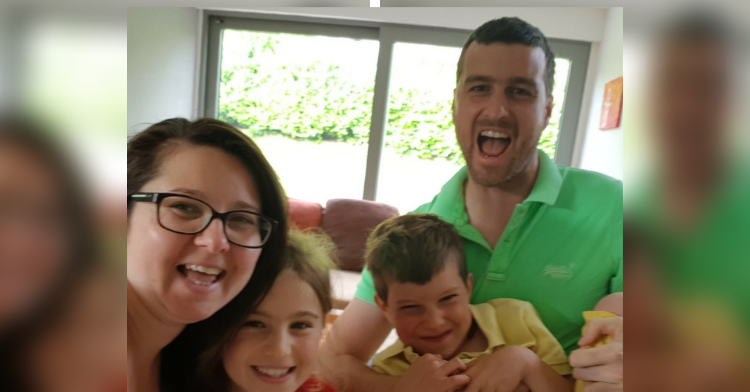A 13-year-old boy “beat all odds” by becoming the first person to ever be cured of an “incurable” brain cancer.
Videos by InspireMore
Lucas Jemeljanova first fell ill about seven years ago. While on vacation with his parents, Cedric and Olesja, he said he felt unwell. Then, all of a sudden, he could no longer walk a straight line. Nosebleeds came shortly after, and then he started losing consciousness.
At only 6 years old, Lucas was diagnosed with diffuse intrinsic pontine glioma (DIPG). Statistically, 98% of those with the incredibly rare cancer die within five years. Children usually die within 12 months or less. But Cedric and Olesja were determined to give him a chance to survive. So they took him to France where he was chosen at random to undergo the BIOMEDE trial.

The drug Lucas received worked by blocking the mTOR portion, which helps to divide and grow cancer cells. Before Lucas took the treatment, it had never shown success.
Years passed, and the cancer seemingly went away as Lucas continued to thrive. Fearing the cancer could return, his doctors didn’t know when it was safe to stop treatment. They later found out that Lucas silently stopped taking the medication a year and a half ago, and he remained in remission nonetheless. He has officially been cancer-free for five years.
“Over a series of MRI scans, I watched as the tumor completely disappeared,” Lucas’ doctor, Jacques Grill, told AFP. “I don’t know of any other case like him in the world.”
Scientists Are Working Hard to Learn How the Medication Worked For Lucas
At 13, the boy has continued to beat the brain cancer, and he’s enjoying a typical, happy childhood. Seven other children participated in the trial alongside Lucas, and it added years to their lives, but he was the only one cured. It’s still unclear why he survived when others didn’t, but scientists are hoping to find answers in the coming years and months.

Dr. Grill has a theory that Lucas has “biological particularities” that pair perfectly with his medication.
“Lucas’ tumor had an extremely rare mutation which we believe made its cells far more sensitive to the drug,” a researcher named Marie-Anne Debily, who works with Dr. Gill, noted. “Lucas’ case offers real hope. We will try to reproduce in vitro the differences that we have identified in his cells.”
Scientists are currently working to reproduce the difference in Lucas’s cells. From there, they hope to replicate those differences in organoids to see if the drug will continue to work as it did for Lucas.
“The next step will be to find a drug that has the same effect on tumor cells as these cellular changes,” said Dr. Debily
You can find the source of this story’s featured image here.
Want to be happier in just 5 minutes a day? Sign up for Morning Smile and join over 455,000+ people who start each day with good news.


